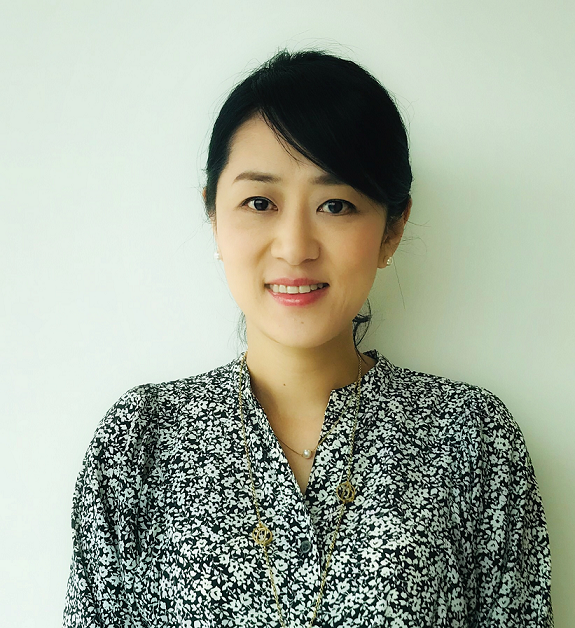
Riko Muranaka, M.D., M.A.
(村中璃子)
Riko Muranaka is a medical doctor and journalist who is a visiting professor at Doshisha University and a lecturer at the Graduate School of Kyoto University School of Medicine. She is the winner of the John Maddox Prize 2017, hosted by the science magazine “Nature” and the UK charity Sense About Science. She has worked as a consultant for the WHO Western Pacific Regional Office and WHO Center for Health Development, and as a researcher at the Bernard-Nocht Institute for Tropical Medicine.
Muranaka gained recognition as a journalist during the Ebola hemorrhagic fever outbreak in 2014 for her timely publication of articles related to national security. Her article, “Ebola as a national defence” was selected as one of the best op-eds of 2014 in the Japanese paper Yomiuri Shinbun. In October 2015, Muranaka published the article, “Did the HPV vaccine cause these violent fits?”, “Is there science behind the HPV vaccine drug injury theory?”, and “How can we save the girls suffering from HPV vaccines?”, challenging the Japanese society’s belief in the dangers of the HPV vaccine and reopening public dialogue about its safety. Her op-ed, “Stopping the Spread of Japan’s Antivaccine Panic” was published in the Wall Street Journal on November 28, 2016.
In November 2017, Muranaka received the John Maddox Prize, awarded to individuals who promote sound science and evidence on matters of public interest despite facing difficulty and hostility. Following this, she published her first book, “A Hundred Thousand Wombs- Was that seizure caused by the HPV Vaccines?” in March 2017.
In addition to her first book, she published her second book, “Weaknesses of Japan Revealed by the Novel Coronavirus – Infectious Diseases as National Defense,” in August 2020. Her third book, “A New Theory of Liberty to End the Pandemic,” is set to be published in May 2023.
Her acceptance speech (English) for the John Maddox Prize is published here.
.
同志社大学大学院生命医科学研究科客員教授、京都大学大学院医学研究科非常勤講師。一橋大学社会学部出身、社会学修士。北海道大学医学部卒。WHO(世界保健機関)の新興・再興感染症・パンデミック対策チームにて新型インフルエンザ対策等に従事。その後、新型コロナパンデミックを挟み、ベルンハルトノホト熱帯医学研究所の研究員として新型コロナワクチンの開発に、WHO健康開発センターでは広報のコンサルタントを務めた。
2014年のエボラ出血熱流行時、「感染症と国防」の問題を扱ったシリーズ記事で注目され、そのうち1本が読売新聞「回顧論壇2014」で政治学者の遠藤乾氏の選んだ論考の三選に入る。2015年10月から2016年6月にかけて子宮頸がんワクチン問題について月刊「Wedge」等に掲載した記事は医学界・科学界からの強い支持を得て、危険だということで止まっていた子宮頸がんワクチン問題に一石を投じ、2022年には8年10カ月にわたって停止していた同ワクチンの積極的接種勧奨が再開した。
2017年、子宮頸がんワクチンに関する科学にもとづく執筆活動が評価され、科学誌『ネイチャー』等が主催するジョン・マドックス賞を受賞。 BBC、ガーディアン、ネイチャー、サイエンスほか、海外のニュースメディアや科学専門誌で広く報じられた。
その後も「新潮45(廃刊)」「日経ビジネスオンライン」「現代ビジネスオンライン」などのウェブメディア・雑誌に執筆。2016年にはTokyoエフエム系列のJFNラジオ「村中璃子の文系女医のニュースラボ」を担当した。2017年には東洋経済社の女性向けメディア『ハレタル』で、科学書のブックレビュー「科学書から読み解く 私たちの生きる知恵」を連載。2021年4月より文化放送「おはよう寺ちゃん」5時台の水曜隔週レギュラーとして出演、『経済界』で「文系ドクターの医療ニュース深読み」を連載している。
2020年からの新型コロナウイルスのパンデミックに際しては、WHOでの勤務経験を生かし、読売放送「情報ライブ ミヤネ屋」、テレビ朝日「サンデーLIVE!!」「スーパーJチャンネル」等に出演したほか、「文藝春秋」「Voice」「夕刊フジ」など多数の国内メディア・ウェブメディア、英「The Guardian」やBBC、米「ワシントンポスト」紙などにも寄稿・コメントした。
著書に『10万個の子宮ーあの激しいけいれんは子宮頸がんワクチンの副反応なのか』(平凡社、2018年2月)『新型コロナから見えた日本の弱点ー国防としての感染症』(光文社、2020年8月)がある。2022年5月、文藝春秋社より『パンデミックを終わらせるための 新しい自由論』を刊行の予定。
マドックス賞受賞スピーチ「10万個の子宮」の日本語全訳はこちらから。
